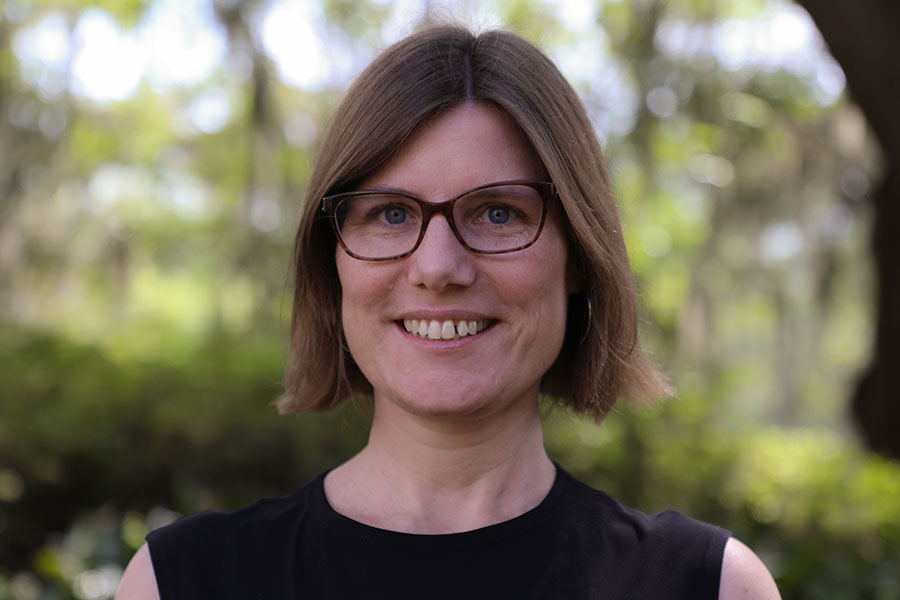
A Florida State University faculty member has earned funding from the National Science Foundation to travel to South America and investigate the ways languages influence one another after their speakers first interact.
Associate professor of linguistics and Spanish Antje Muntendam received a three-year, $326,292 grant for her project, “Linguistic outcomes of language contact: The production and perception of intonation.” This research explores the impacts of the Spanish language on Quechua, an Indigenous and endangered language that originated in Peru and is still spoken there. Quechua is also spoken in Argentina, Bolivia, Chile, Colombia and Ecuador.
“This grant is one of the most prestigious in my field, recognizing the value and impact of my research, and it will significantly enhance my body of work,” said Muntendam. “It also acknowledges the importance of studying Indigenous languages and involving underrepresented communities in linguistic research.”
Muntendam also serves as an affiliate faculty member of FSU’s Native American and Indigenous Studies Center (NAIS), which launched last year and unites research from academics across diverse disciplines within the university including art, art history, music, modern languages and linguistics, religion, history, archaeology, geography and anthropology.
For the project, Muntendam will examine the production and perception of questions in both Quechua and Spanish and explore how the languages’ different intonation strategies interact in the spoken language of bilingual people. Intonation — the melody of a sentence that corresponds to changes in pitch, such as high or low tones, that may cause changes in meaning — is a key, yet relatively understudied, aspect of linguistics.
“Dr. Muntendam’s award represents a special moment for a humanities department like ours,” said Reinier Leushuis, chair of the Department of Modern Languages and Linguistics. “NSF classifies linguistics as a STEM field, which exemplifies the rich potential of interdisciplinary scholarship at the intersection of humanities and science research.”
In Muntendam’s research, Quechua and Spanish were specifically chosen for their significant differences and the long-term, intensive contact between the speakers of both languages. Once widely spoken, Quechua originated more than 5,000 years ago and became the Inca Empire’s official language in the 1400s. The arrival of Spanish conquistadors soon after drove a significant increase in bilingualism. Today, this bilingualism persists, though Quechua itself is endangered — at risk of disappearing entirely. Muntendam’s research identifies the effects of both linguistic factors and social factors on whether a language adapts, survives or disappears.
“This research aims to preserve cultural knowledge and identity, which are intrinsically linked to language,” Muntendam said. “When speakers lose a language, they lose a vital part of their cultural heritage. Incorporating experimental methods into Indigenous language studies allows this research to not only broaden the scope of linguistic inquiry but also highlight the importance of conducting rigorous, data-driven studies within Indigenous communities.”
During two- to three-week research trips in Peru and Argentina, Muntendam will collect data and carry out broader activities with the Quechua-speaking community by training local research assistants and conducting lectures and workshops at local universities and institutes including the National University of Santiago del Estero in Argentina. The grant also enables her to hire a postdoctoral researcher who will travel for nearly four months collecting data in addition to recruiting undergraduate research assistants in Tallahassee through the Center for Undergraduate Research and Academic Engagement’s Undergraduate Research Opportunity Program (UROP).
For her research, Muntendam will employ a combination of linguistic and psycholinguistic experimental methods such as proficiency tests and eye-tracking, which continuously measures how people process spoken language, in addition to elicitation tasks, which require a subject to speak. In Quechua, questions are marked with a grammatical particle, or a non-inflected sentence component. Further, questions and statements are not distinguished through intonation, unlike in Spanish.
“The insights of community members are invaluable and will greatly enhance the quality and depth of our research,” Muntendam said. “These collaborations accelerate the research and make it more comprehensive than if done without the community’s input. Additionally, this project will produce valuable resources for both academic research and language documentation and education, benefiting scholars and the communities involved.”
In addition to her role as an associate professor and with NAIS, Muntendam is the coordinator and advisor of the Linguistics Program at FSU and an affiliated member of the Heritage Linguistics Lab at Leiden University.
To learn more about Muntendam’s work and the FSU’s Department of Modern Languages and Linguistics, visit modlang.fsu.edu.



